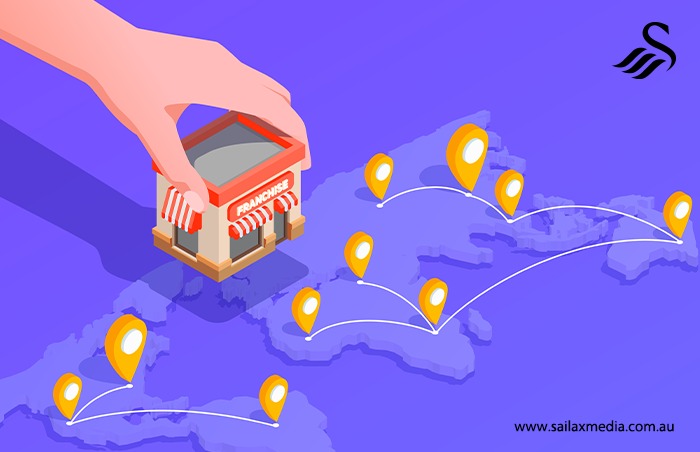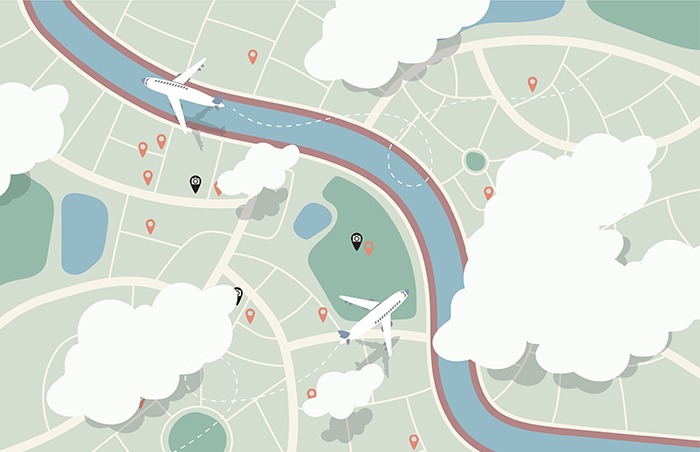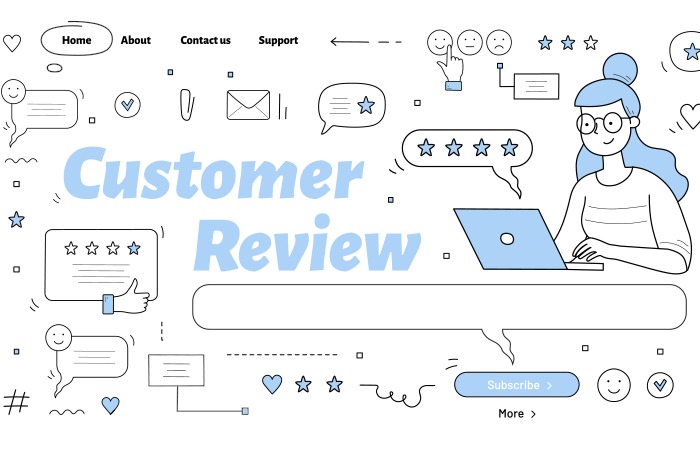13 Jan 2023by panda
Understanding Hyperlocal Marketing- and the Right Ways to Do it

Most local businesses run citywide advertisements, however, some marketers claim this needs to be genuinely local(as city-wise advertisement isn’t 100% local).
Google reports a 200 per cent increase in “near me” searches between 2016 and 2019. We contend that the figure is even higher now, supporting the need for hyperlocal marketing as customers increasingly rely on their smartphones to obtain information.
This article covers the following topics:
- What exactly is hyperlocal marketing?
- The benefits of implementing a hyperlocal marketing plan
- How to implement hyperlocal marketing techniques the right way
Hyperlocal Marketing: What is it?
Hyperlocal marketing is the methodical practice of focusing on potential customers in a very limited region where a particular business is located. This can be as precise as a few blocks or streets.
As part of a larger local digital marketing campaign, it targets users of handheld devices conducting “near me” searches. This intention serves as the foundation for the “why” that local Seo experts and business owners use to develop hyperlocal marketing methods.
Why You Must Implement a Hyperlocal Marketing Plan?
Imagine you’ve just opened a cafe in a busy business district in the city’s northern part. Instead of spending a significant amount of money on citywide advertising, why not use hyperlocal digital marketing in your immediate area?
And why would folks from the southern suburbs of the city travel great distances to visit your cafe, only for the sake of coffee?
Even if you provide fantastic coffee, today’s consumers desire convenience more than anything else; they want a cafe they can stroll to in the middle of their hectic life. Hyperlocal digital marketing’s main goal is to satisfy consumers’ need for convenience.
However, localisation marketing is for you if you own a multinational company.
Digital marketing for localisation is distinct from hyperlocal marketing. Although it’s still very new in comparison to other local SEO tactics, remote agencies and SaaS enterprises have found it to be effective.
Consider Facebook as an example; Mark Zuckerberg created the social media platform in English originally. It is now accessible in multiple languages, including Chinese, French, and Portuguese.
By adjusting its product to the language, technological, and cultural requirements of international markets—through the website and app localisation process—the tech company “localised” it’s offering.
Localization marketing is what you get when you make that process entirely focused on digital marketing; it’s when a company’s local SEO experts create their content or hire others to create native or localised content while running Google local ad campaigns to drive demand.
Small, regionally oriented enterprises and local SEO specialists can grow more quickly thanks to this local web marketing strategy.
The Right Way to Execute Hyperlocal Marketing Techniques
Even while we think that a one-size-fits-all strategy for local digital marketing doesn’t usually work with all cases, you’ll discover that putting these suggestions into practice will help your upcoming hyperlocal marketing campaign.
#1 Optimisation of Google Business Profile

There is no doubt that Google is the best search engine; where numerous “near me” enquiries are made. Therefore, by just claiming your listing on the website, you may make your company more visible in search engine results (SERPS).
However, you should go beyond exposure and take control of how your business appears on Google Maps and Searches. Think about including Google Business Profile optimisation in your hyperlocal marketing plan:
• Business name. Make sure to utilise the name of your business that is displayed on your storefront.
• An area code and address. A local number must be obtained, and it must be used consistently throughout all of your listings.
• Business hours. You don’t want one of your potential customers to be in the wrong place at the wrong time.
• Media. Impressive pictures and videos of what you have to offer might give consumers a virtual sense of your company.
You should create a unique business listing for every one of your franchisees if they have several locations. Additionally, make sure you select the category that best fits your firm while you’re at it.
Google claims that choosing the right category can help you draw in clients who are looking for businesses like yours nearby.
#2 Management of Customer Reviews

A wonderful way to interact with your clients and potential customers is by including Online Reputation Management (ORM) in your local marketing strategy.
Managing customer reviews will help you establish and maintain a positive online reputation. But keep in mind that managing reviews ought to constitute a minor portion of one’s local online marketing plan.
The following should be part of your customer review management:
• Consistent monitoring of your digital reputation
• Responding to all feedback, whether favourable or unfavourable
• Responding empathetically to criticism
• Compiling and emphasising complimentary remarks.
To help you increase your search exposure, you can also collaborate with a nearby marketing firm that specialises in Online Reputation Management (ORM).
#3 Implementing Local Ads on Facebook and Google

Use Pay-Per-Click (PPC) campaigns to target potential customers, such as local awareness advertisements on Facebook or Google.
Local businesses seeking to increase brand awareness and boost foot traffic to their physical establishments turned to Facebook when it first released the Local Awareness advertisements style in 2014.
On the other side, Google local ads’ broad reach is arguably the best approach to reach more distinct users in your neighbourhood—thanks to its display network.
Although it may seem difficult at first, both ad platforms provide an easy-to-use interface for creating advertisements that serve this purpose. However, some business owners can be limited by their availability of time and employees. If this applies to you, seek outside assistance from a local PPC expert in digital marketing.
#4 Localized Content Creation

Content is essentially the backbone of your hyperlocal marketing campaign. Investing in the creation of regionally relevant content enables you to target and engage visitors who are conducting local searches.
Sailax Media also suggests asking the following enquiries to maximise Return On Investment(ROI):
i. Which platform is ideal for your target audience?
ii. In which area will your interaction have the greatest influence?
Your primary goal when generating content for landing pages, blogs, and testimonials should be to produce what your prospects want to read. For example, continuing with the cafe as an example, you could title your blog post “best coffee shop in Hawkins.”
Before creating content, it is crucial to conduct keyword research to determine what the local population is searching for.
#5 Partnering with local brands that aren’t in competition

By forming a partnership with a regional business that will probably enhance your brand, you can enter the local market more quickly.
As a practical example, if you’re preparing to open a coffee shop, acquire your preferred baked goods from a different nearby bakery until you can fully produce your own. The creation of items for your business to exhibit in your store and advertise on social media by regional artists is another joint venture you can consider.
Additionally, you might search for guest posting possibilities with a local firm that has a reputable website as part of your local SEO efforts.
With Sailax Media, Narrow Your Focus and Increase Your Sales
Now that you have a better understanding of hyperlocal marketing, its significance, and how to use it, allow us to introduce you to Sailax Media.
Sailax Media is a local marketing agency aimed squarely at local businesses that want to focus their advertising, cut costs, and boost sales.
Our digital marketing team consists of SEO experts, PPC specialists, and content writers prepared to help your business grow through partnerships, content, advertisements, and ORM. You can schedule a no-cost marketing consultation if you have any inquiries.

